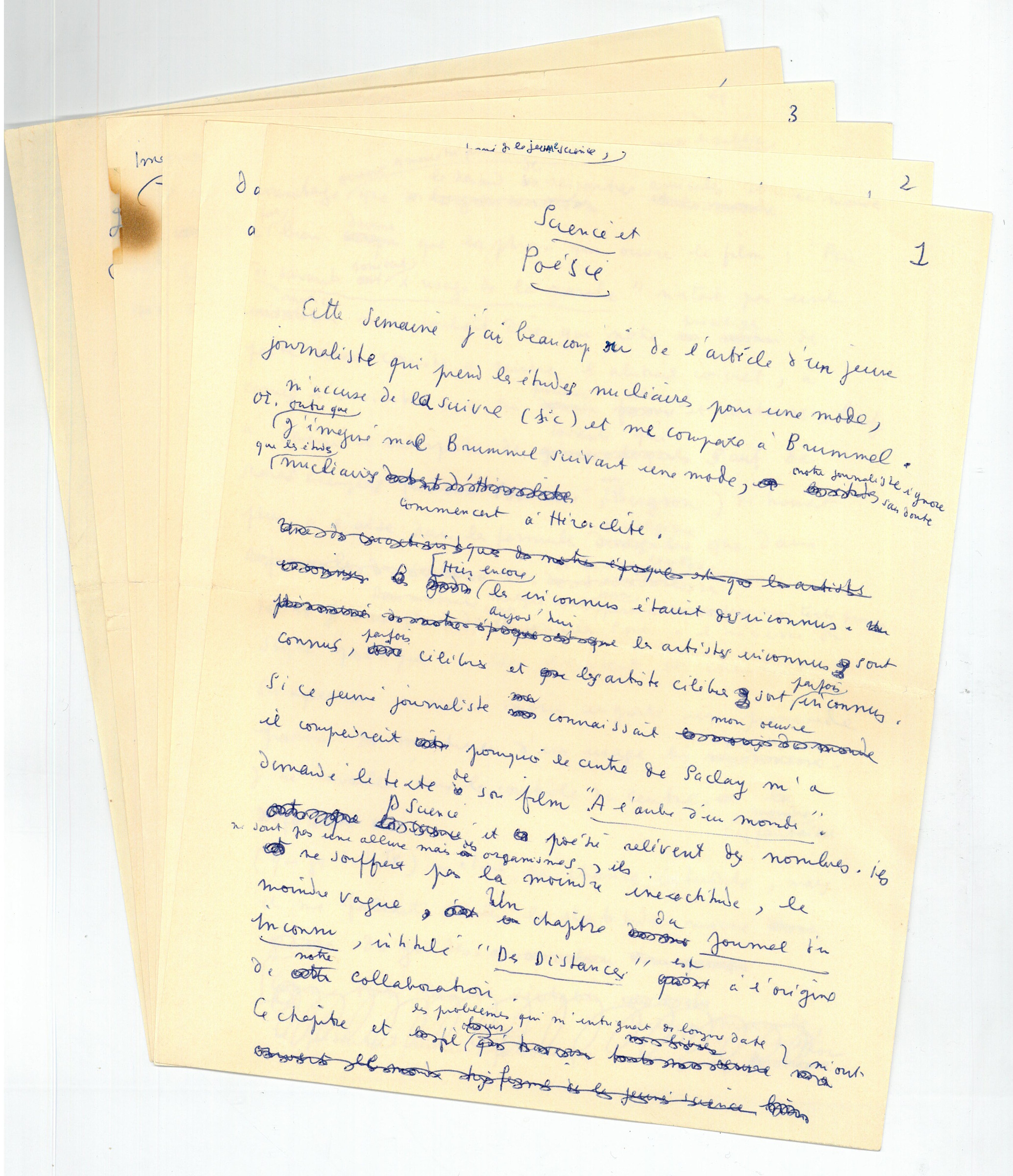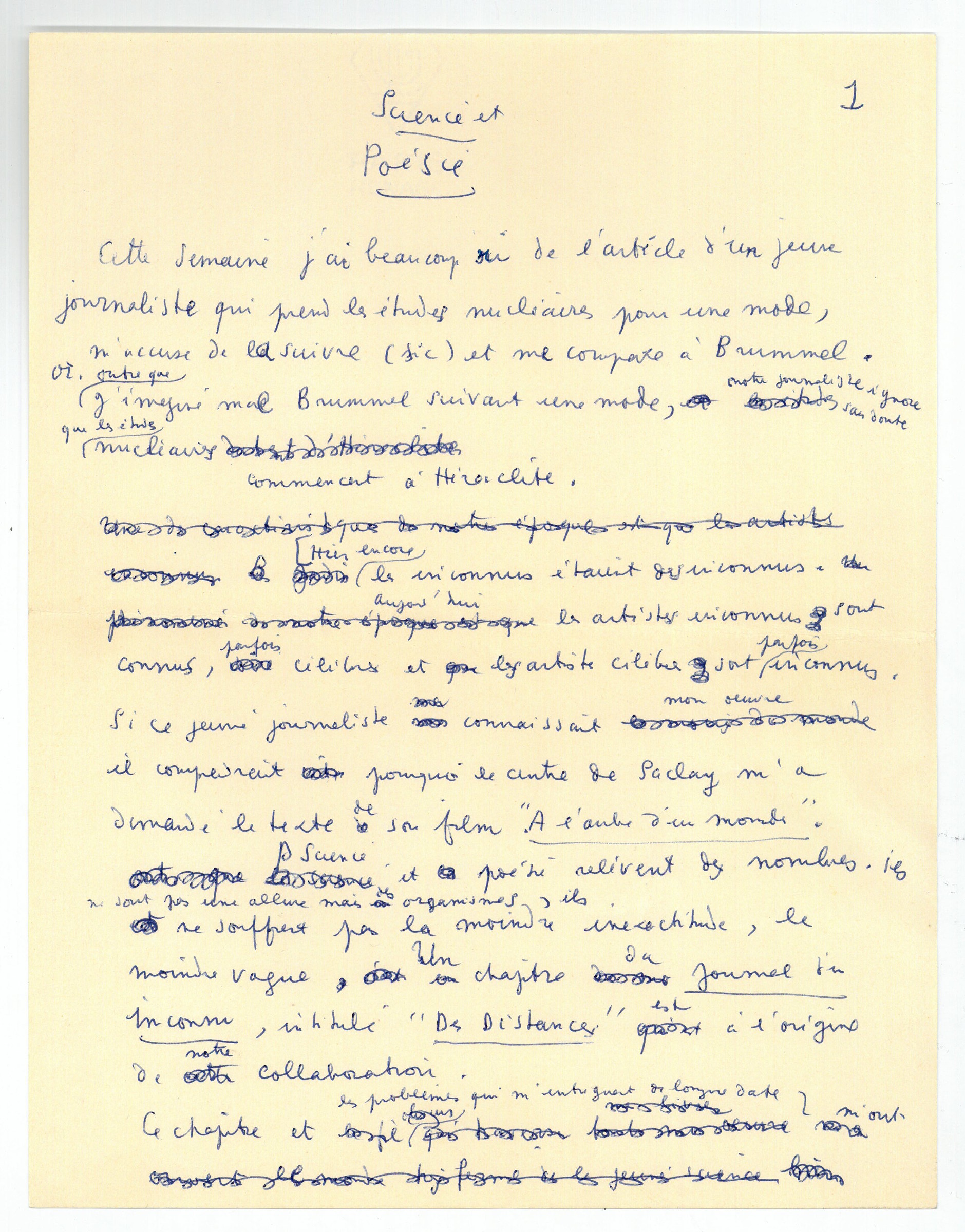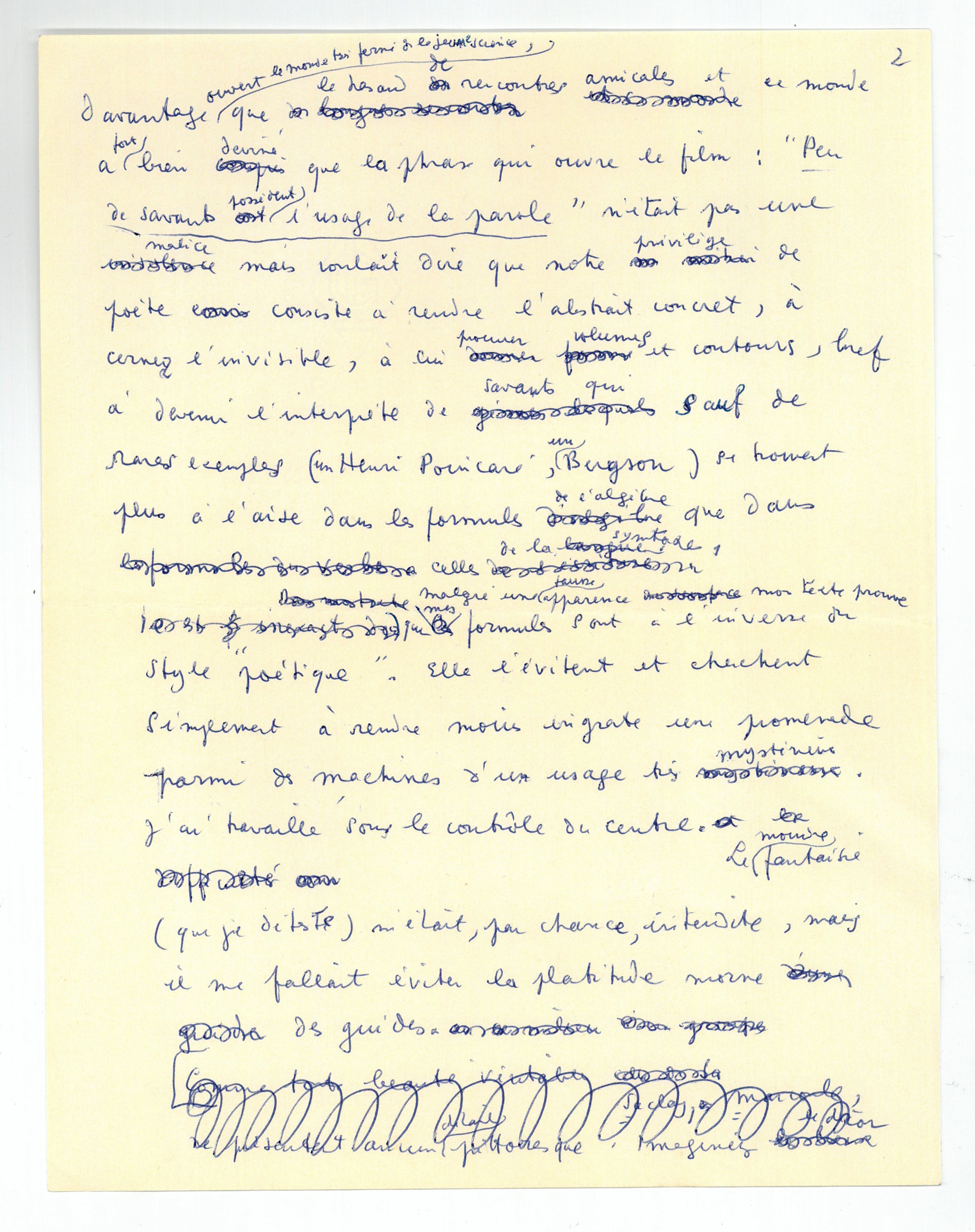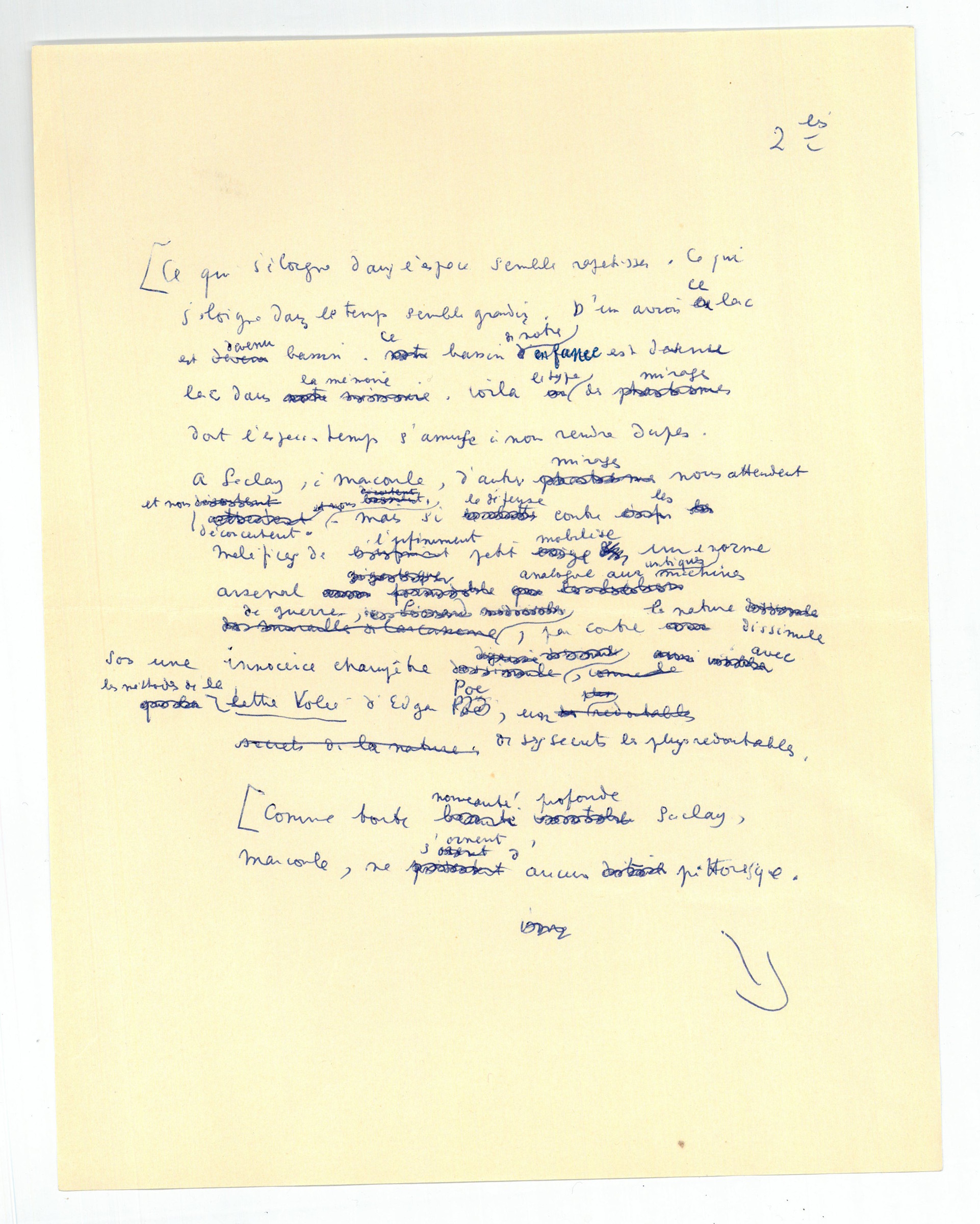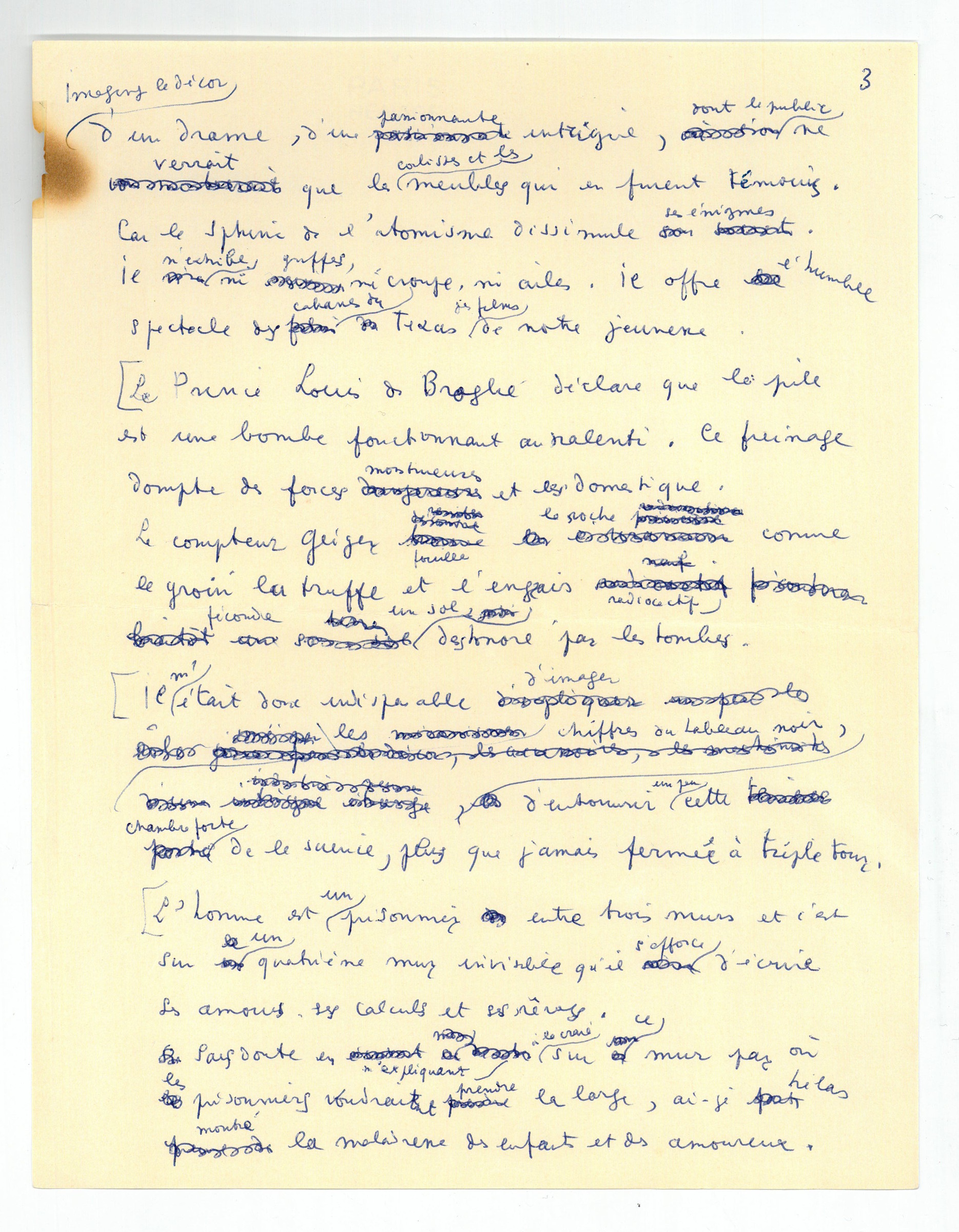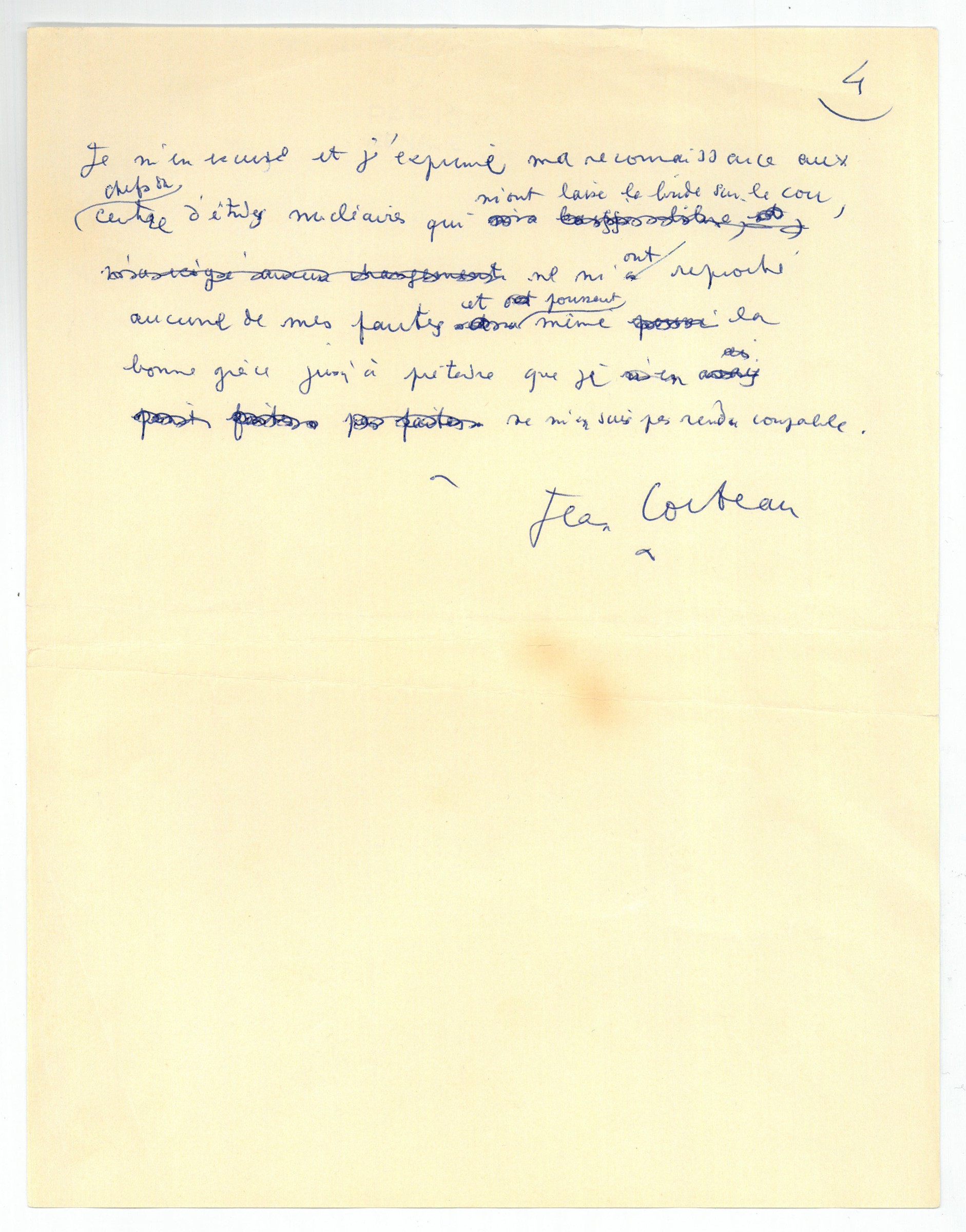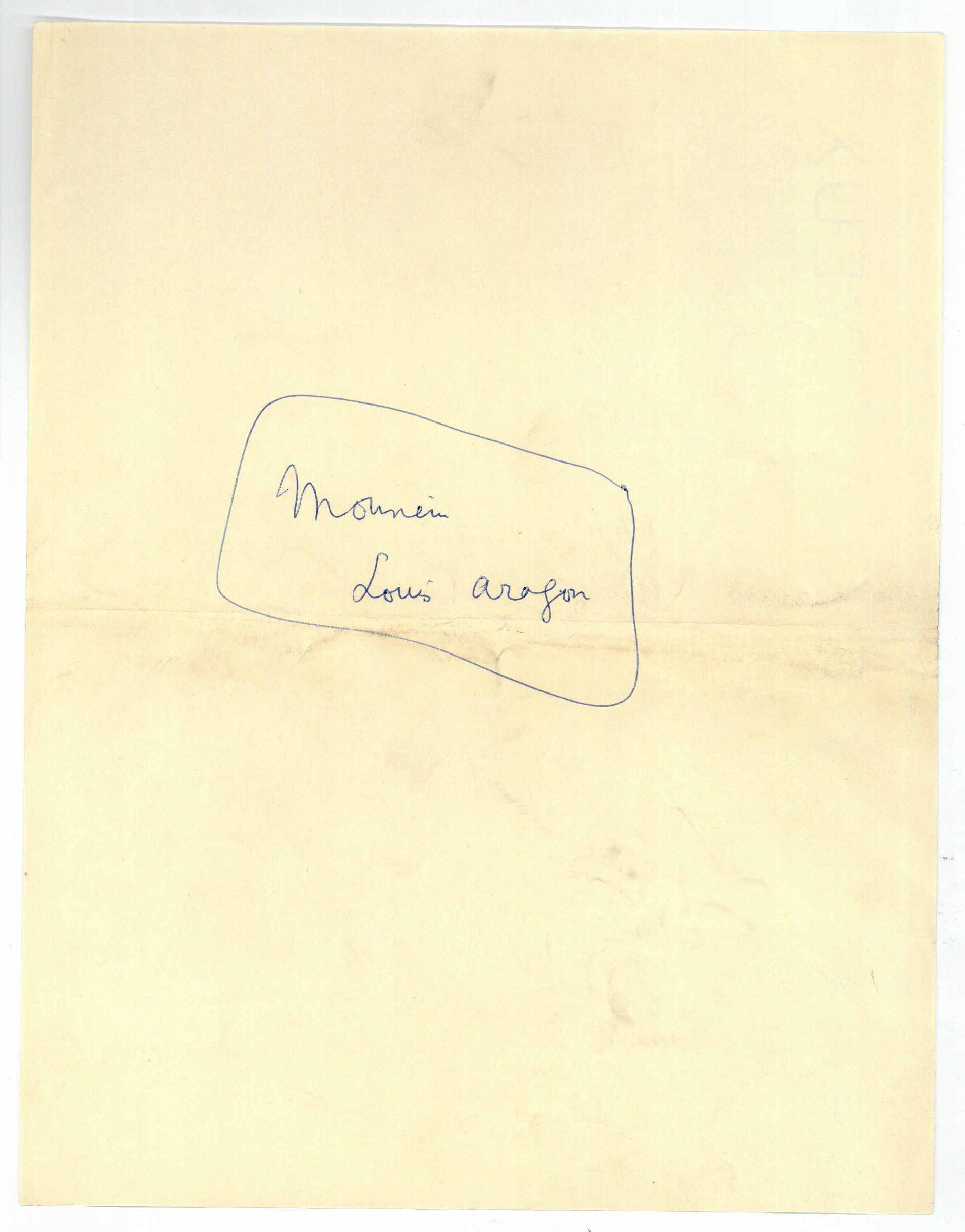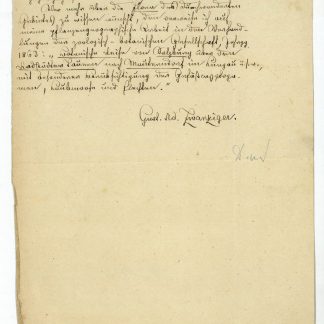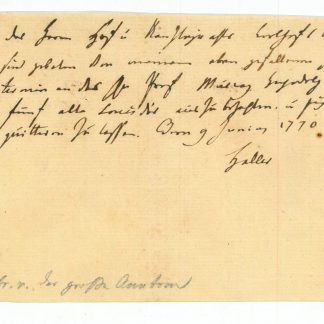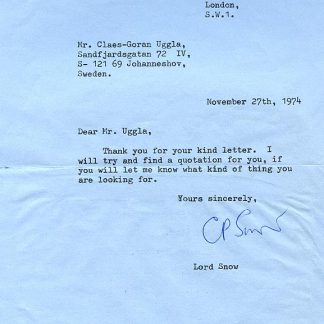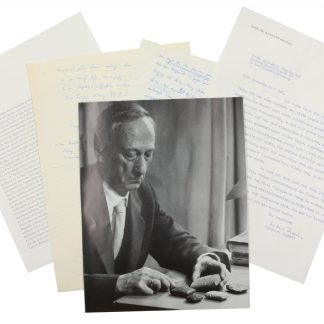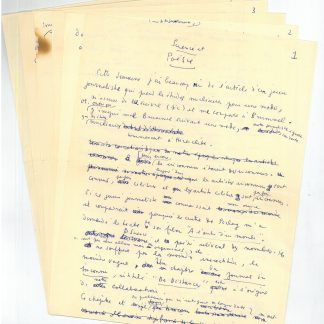"Few scientists master the use of the word": Jean Cocteau as a science communicator
"Science et Poésie". Autograph manuscript signed.
4to. 4½ pp. on 6 ff. In French.
€ 4.500,00
Highly interesting manuscript for an article written in response to criticism of Cocteau’s collaboration with the Saclay Nuclear Research. Cocteau had been asked by the research centre to provide the text for the voice-over commentary of the 1956 documentary short "À l’aube d’un nouveau monde" on nuclear energy. This was preceded by Cocteau’s 1953 publication "Journal d’un inconnu" with a chapter entitled "Des Distances" on his notion of space that had convinced the scientists at Saclay of Cocteau's potential as a science communicator. The manuscript opens with the remark that he had to "laugh a lot" about the "article by a young journalist who believes nuclear research to be a fashion" and who compared Cocteau to the legendary dandy Beau Brummell for following this apparent fad. Cocteau argues that nuclear research began with the Greek philosopher Heraclitus and accuses the journalist of not knowing his work, pointing to his "Journal d’un inconnu" as the origin of the collaboration. He compares science and poetry to organisms "that will not suffer the smallest inexactness, the smallest vagueness" and goes on to defend the opening phrase of the voice-over, "Few scientists master the use of the word", that had apparently been misunderstood as an insult. For Cocteau, the "privilege of the poet consists in making the abstract concrete, in defining the invisible, to procure it with volume and outlines, in short, to become the interpreter of scientists". Although he mentions Henri Bergson and Henri Poincaré as exceptions to the rule, Cocteau insists that scientists "are more comfortable with algebraic formulae than with those of syntax". At the same time, he stresses that "his formulas" for the film "are the opposite of the 'poetic' style", comparing his text to a simple attempt "to make a stroll among machines of mysterious use less unpleasant". He underlines that he was not allowed to employ "the slightest bit of imagination", which he "detests", but that he also had to "evade the bleak platitudes of guidebooks". It is arguable whether a simile like the following is devoid of imagination: “with pastoral innocence nature employs the method of Poe’s Purloined Letter to dissimulate the most formidable secrets". The theme of dissimulation continues in the second half of the text, when Cocteau conceives "the Sphinx of atomism" and compares the Geiger counter to a truffle pig. Cocteau closes with thanks to the scientists at Saclay.
5 pages are numbered 1 through 4, with an annex to page 2. An unnumbered leaf with the autograph designation "Monsieur Louis Aragon" suggests that the text was supposed to be published in Aragon’s literary weekly "Les Lettres françaises". Several cancellations and changes by Cocteau's hand. Minimal stains and tears. A minor tear due to fire damage on page 3 restored with adhesive tape.

